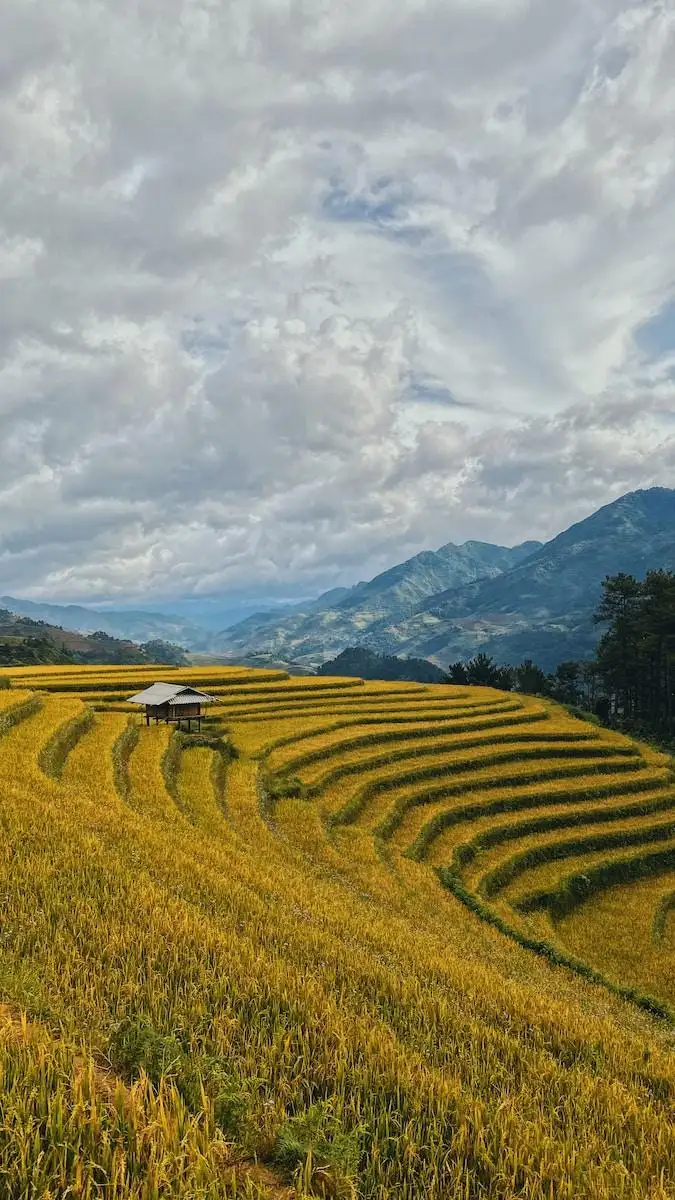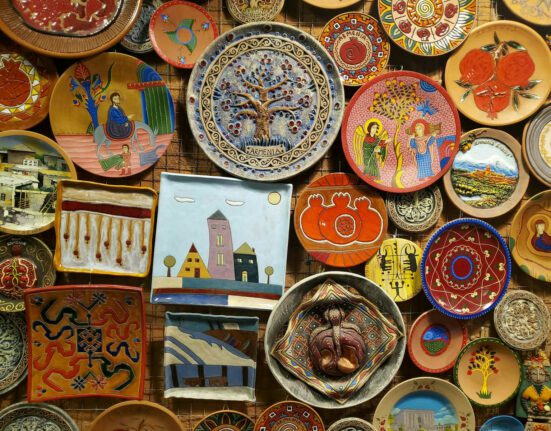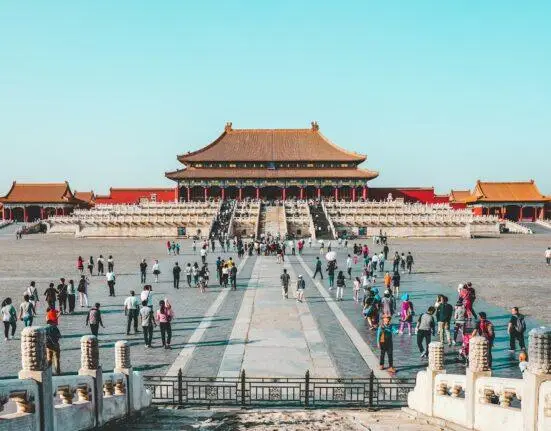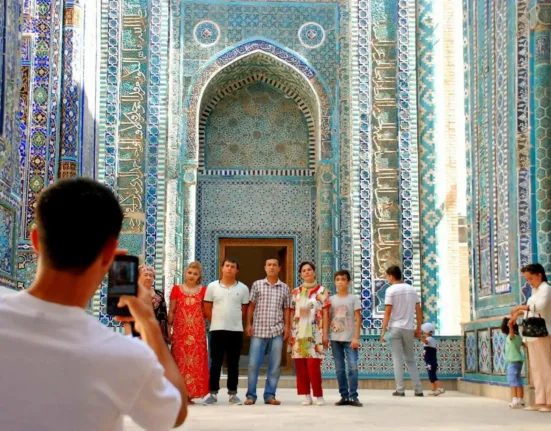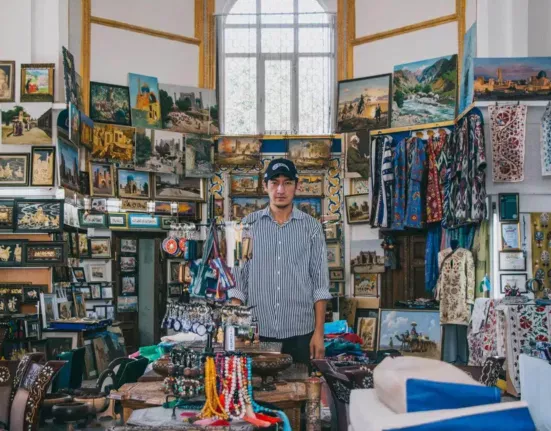Summary. Vietnam is a fascinating country with lots of interesting cultural experiences. Before visiting, it is important to take into account a few key factors to ensure a great stay. First, consider the weather and dress appropriately in layers. Next, carry a sufficient amount of cash, as many businesses do not accept card payments.
Are you curious about the culture, food, and attractions of Vietnam? Are you looking for tips and advice on how to prepare for your trip? Are you wondering what you need to know before you go to Vietnam?Vietnam is an incredible, exciting destination filled with breathtaking landscapes, flavorful cuisine, and friendly locals. With a little preparation and knowledge, you can get the most out of your experience in Vietnam. From making sure you have the right travel documents to understanding the cost of living, here’s what you need to know before you visit Vietnam. First, make sure you have the necessary travel documents in order before you book your flight.
Depending on your nationality and your original point of departure, you may be eligible for a visa waiver. Other travelers may need to apply for a visa in advance. Check the Embassy of Vietnam’s website for more information on the requirements for a visa. When it comes to the cost of living in Vietnam, it’s fairly low. Accommodation, local transport, and food are especially inexpensive. Of course, depending on your lifestyle and how often you indulge in luxury items, your budget may vary.
It’s also important to check the exchange rate before you head to Vietnam, to find the most up-to-date information. Vietnamese cuisine is one of the most popular cuisines in the world. From fragrant Pho noodles to banh mi sandwiches, there’s something for everyone. You should also try fresh seafood dishes, such as crab, fish, and shrimp. For drinks, make sure you try bia hoi, reasonably-priced draft beer that can be found throughout cities.
What Do I Need To Know Before I Go To Vietnam?

Vietnam is a wonderful nation with a rich culture, natural beauty, and interesting adventures. There are many things to know before travelling, regardless of whether it will be your first trip there or whether you have previous experience. Here is a compendium of essential data and useful advice to help you start your journey to Vietnam off on the right foot, including everything from paperwork and passport requirements to currency and culture. You must have a passport that will be valid for at least six months from the day you enter Vietnam, to start. Additionally, you need at least two blank pages in your passport for stamps at the airport and at the border.
You may apply for a visa online or via the mail by sending a letter to the Vietnam Embassy in your country. The Vietnamese Dong (VND) serves as the national currency of Vietnam, thus it’s necessary to have sufficient of it on hand as certain establishments won’t take other forms of payment. Prior to your trip, make sure to exchange your money according to your research and planning. The majority of Vietnam’s ATMs only accept PINs of four digits, so if yours is six digits, you’ll need to alter it before you leave.
There are several different public transportation options in Vietnam. In comparison to taxis or rental automobiles, buses and railways are both accessible and less expensive choices. If you don’t know much Vietnamese, taxis are also frequently accessible in the cities and might be helpful. However, employ trusted businesses to avoid becoming a victim of dishonest drivers. Before you set off on your trip, try to acquire a broad sense of the route as well as the price, and just to be safe, make a note of the taxi’s identification number and the driver’s picture.
Travel And Visa Info For Travel To Vietnam

If you’ve chosen Vietnam as your travel destination, whether for a lengthy vacation, a business trip, or even a longer stay, it’s crucial to be aware of the entrance criteria and any unique needs you may need to fulfill before leaving for the country. What should you know before visiting Vietnam? To make your planning as easy and hassle-free as possible, continue reading. Visas: You could require a visa, depending on the nature of your journey and the duration of your stay. The most typical sort of visa is a tourist one, and to apply you must have a passport that is currently valid for at least another six months.
Health Requirements: Before travelling to Vietnam, be sure to speak to your healthcare provider about recommended vaccinations. Make sure you have enough of any prescription medication you take to cover your stay, and consider buying comprehensive travel insurance to cover any medical-related costs and other expenses. The currency in Vietnam is the Vietnamese dong (VND), and as a general rule, you should only carry dong while in the country.
Cash is still the preferred payment method and ATMs are conveniently located throughout the cities and towns. Before traveling to Vietnam, make sure to discuss the needed vaccines with your doctor. Consider purchasing comprehensive travel insurance to cover any medical-related expenditures and other expenses, and make sure you have enough of any prescription medications you require to last the duration of your trip.
Make careful to investigate when and where to receive the best exchange rates before leaving. Traveling in Vietnam is now simpler than ever thanks to a variety of transportation alternatives that match every budget. You shouldn’t have any trouble around the nation thanks to the availability of buses, railroads, and motorcycle taxis. Now that most of the major cities have major travel platforms like Grab and Airbnb, the experience is much more practical.
What Should I Avoid In Vietnam?

Are you going to Vietnam? There are many incredible things to do in this culturally and linguistically diverse nation, but there are also certain things you should stay away from if you want to enjoy your vacation. Take the required safety measures as a guest to ensure your safety and convenience of travel around the nation. What you should know before visiting Vietnam is listed below!Make sure you abide by the traffic laws. In many Vietnamese cities and towns, the traffic may be hectic, so it’s crucial to abide by the laws, drive cautiously, and keep in mind that the majority of cars have the right of way.
Keep in mind the dress code. Travelers visiting Vietnam should respect local traditions by dressing modestly. Avoid donning exposing attire, such as tank tops, blouses with exposed shoulders, or skirts that are longer than the knee. When entering temples, churches, and other sacred buildings, make sure your shoulders and legs are covered. Observe regional traditions and customs.
Always seek permission before taking photographs, avoid pointing with your feet, and follow Vietnamese customs to avoid upsetting the populace. Stay away from any pointless political commentary. While in Vietnam, it’s necessary to refrain from mentioning politics or world affairs. For instance, political protests and demonstrations are prohibited, and people are not permitted to criticize the government or its representatives.
Vietnam Travel Budget: What Does A Trip To Vietnam Cost?
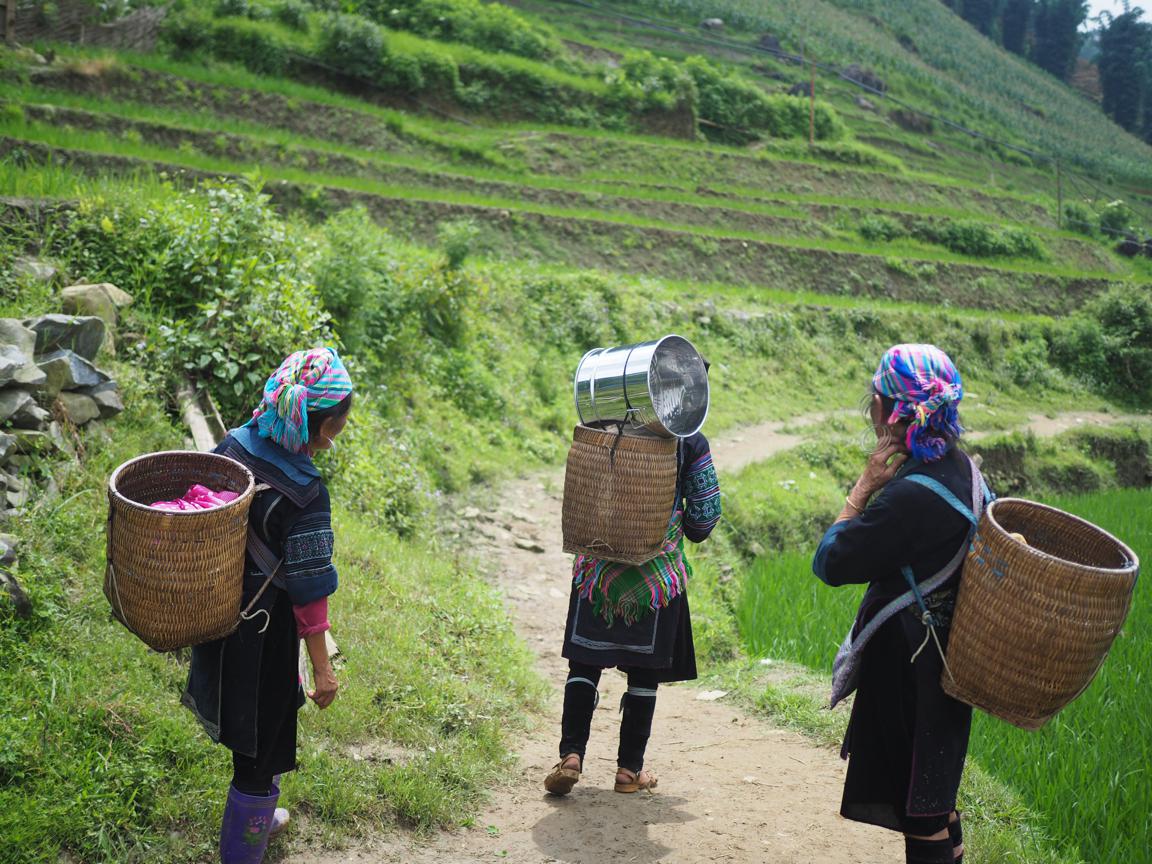
You’ll want to know how to set a budget for your vacation if you want to go to the fascinating country of Vietnam. The cost of a vacation to Vietnam will depend on a few aspects, regardless of whether you’re a first-time traveler or an experienced veteran planning a budget-friendly trip. Here are some things you should know before visiting Vietnam, including how to set aside money for the ideal vacation, where to stay, where to go, what to eat, and what to drink. From budget-friendly hostels and guesthouses to opulent hotels, lodging is available. Hostels and guesthouses cost between $10 and $30, while three-star hotels cost around $50.
When establishing your budget, be sure to consider the quality, facilities, and location of the accommodations in addition to the cost. Having reliable transportation is crucial for moving across the nation, and ultimately, your budget will determine which option is best for you. Taking overnight buses is the most cost-effective way to travel inside the nation, but there is no assurance of quality. You might pay extra to rent a vehicle or a motorcycle for a more pleasant journey.
In comparison to most other countries, Vietnam has rather affordable food and drink costs. When dining out, you may expect to pay between $2 and $5 in a local restaurant and between $6 and $20 at tourist-friendly establishments. Street food is also quite cheap; you can often get delectable snacks and lunches for between $1 and $ A pint of beer costs somewhere between $1 and $2, depending on where you are.
What Are The Most Popular Places In Vietnam
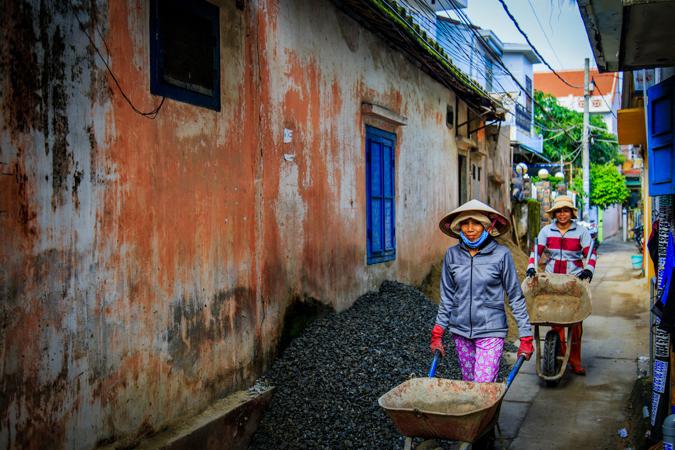
With its breathtaking scenery, colorful culture, and welcoming people, Vietnam is one of the most well-liked tourism destinations in Southeast Asia. There is something for everyone in this lovely nation, whether you want to explore lush forests, enjoy the sun on white sand beaches, or just immerse yourself in the charm that is specifically Vietnamese. So, if you’re considering making Vietnam a part of your travel wish list, here’s what you should know before you go. The capital and entry point to Vietnam is the vibrant city of Hanoi.
The southern Vietnamese city of Ho Chi Minh is particularly well-liked by travelers who want to see its exciting nightlife and magnificent temples. Da Nang, Nha Trang, Hoi An, Phu Quoc, and Mui Ne all have beautiful, undeveloped coastlines when it comes to beaches. Each of these locations offers something distinctive, from bohemian beach huts and five-star hotels to bustling marketplaces and water sports.
Don’t forget to visit some of the incredible historical sites as well; hue, My Son, and the DMZ all provide enlightening and informative glimpses into Vietnam’s extensive history and rich culture. Vietnam offers something to offer every kind of tourist, whether they are seeking an adrenaline-pumping adventure, a relaxing beach vacation, or just to experience the warm friendliness of the locals. Therefore, go ready to explore and remember to brush up on your Vietnamese before you travel.
Wrapping Up
Are you ready to go to Vietnam? Whether you’re staying for a few days or several months, it’s important to make sure you’re prepared for the trip. Do you know the culture and what to pack? What about the cost of living and transportation? Here is everything you need to know before you go to Vietnam. Be sure to double-check your passport and visa requirements. You’ll need a valid passport and a visa to enter Vietnam. Make sure to apply for it in advance, and don’t forget a few passport-size pictures. Next, brush up on the Vietnamese culture.
Try to learn some words and phrases in the language too!When it comes to packing, bring appropriate clothing that is suitable for the weather. Check the average temperature of the area you’ll be staying in before you go shopping for clothes. For long stays, make sure to have some bargains so you can stock up on essentials. Prioritize safety when you’re in Vietnam. Invest in a good travel insurance plan that covers emergency medical evacuation, too. Bring valuable belongings, such as jewelry, watches, and extra money, in a secure bag, and never leave it in an unsupervised area. Moving on to the cost of living, it’s important to know that it varies from one place to another.
To summarize, make sure you’re aware of the passport, visa, and language requirements before traveling to Vietnam. Bring suitable clothing that is suitable for the climate and invest in a good travel insurance. Research the cost of living and available transportation options beforehand, and prioritize safety when you’re there. Are you ready to explore the streets of Vietnam?
Frequently Asked Questions (FAQs)
How much money do I need for 1 weeks in Vietnam?
Generally, a budget of around $50-$100 USD per day should cover accommodation, food, transportation, and some activities.
What is considered disrespectful in Vietnam?
Additionally, it is seen as disrespectful to show emotion in public, make direct eye contact, and to speak loudly or raise your voice.
What’s rude in Vietnam?
It is also considered bad manners to refuse an offer of food or drink, so it is best to politely accept it.
What not to say in Vietnam?
- Don’t make any negative comments about the government or the Communist Party.
- Don’t make jokes about the Vietnam War.
- Don’t make negative comments about Vietnamese culture or customs.
- Don’t refer to Vietnam as a “third world” country.
- Don’t use offensive language or swear words.
Do You Want To Be Inspired? View More Vietnam-Related Articles:
- How To Plan A Vacation To Vietnam? Efficient Vacation Planning
- What Do I Need To Know Before I Go To Vietnam?
- Is It Safe To Travel To Vietnam For A Vacation?
- Best Time To Visit Vietnam: Discover The Ultimate Time To Experience Vietnam’s Magic
- Delve Into The Average Cost Of Travel To Vietnam – Unleashing The Magic Within Your Reach!
Your Next Adventure Starts Here – Don’t Miss Out!
Everything you need to book, plan, and live your dream trip—right at your fingertips. The best deals and experiences sell out fast, so start exploring now before they’re gone.
Score unbeatable airfare deals with Skyscanner and Expedia. Compare flights worldwide, find hidden discounts, and book in minutes. Lock in your ticket now before prices jump.
Find the perfect place to stay anywhere in the world. Compare prices, read reviews, and book instantly for peace of mind on your travels.
Protect yourself while traveling with comprehensive insurance options. Quick setup, global coverage, and peace of mind wherever you go.
Discover tours, activities, and unforgettable experiences. Book easily online and explore at your own pace.
Get your Revolut card to manage your finances effortlessly while traveling. Instant digital setup, low fees, and worldwide acceptance make spending safe and simple.
Stay connected anywhere with global eSIMs from Airalo. Easy setup and affordable data plans for travelers.
Book local experiences and deals effortlessly with Saily. Save money while discovering unique activities.
Claim compensation for delayed or canceled flights with AirHelp. Quick and hassle-free process for travelers.
Love our content? Support our team in content creation via Buy Me a Coffee. Every contribution helps us deliver better guides, tips, and travel inspiration.

